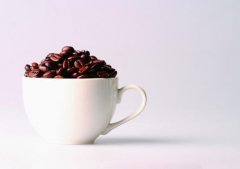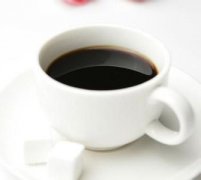What are the characteristics of boutique coffee
All the color, aroma and taste of coffee are characterized by some chemical changes in raw coffee beans after baking.

Bitterness: caffeine, one of the basic flavor elements of coffee
Sour taste: = tannic acid, the second basic flavor element of coffee
Strong alcohol: strong coffee. It smells mellow.
Sweetness: when the sugar in the raw beans of coffee is partially coked after baking, the rest is sweet.
Fragrance (coffee smell): fat in raw beans of coffee. Protein. Sugars are an important source of aroma
The attractive charm of coffee is:
What is the attractive charm of coffee? Its appropriate bitter taste, fragrant mellow, plus the charm of caffeine.
Alcohol or tobacco can make people feel intoxicated and exciting, just as caffeine can be exciting.
Caffeine, due to the role of stimulating the central nervous system or muscles, can restore muscle fatigue, improve work efficiency, and have a sober effect that can make the mind respond lively and sensitive.
There is also asthma caused by stimulation of the sympathetic nerve, which can suppress the excitement of the parasympathetic nerve.
Other coffee also has the effect of helping digestion, especially when eating meat, more gastric juice is secreted, promote digestion and prevent gastroptosis. Since caffeine can break down fat, Westerners must want to have a cup of coffee after eating high-calorie foods.
What is the attractive charm of coffee? Its appropriate bitter taste, fragrant mellow, plus the charm of caffeine.
Alcohol or tobacco can make people feel intoxicated and exciting, just as caffeine can be exciting.
Caffeine, due to the role of stimulating the central nervous system or muscles, can restore muscle fatigue, improve work efficiency, and have a sober effect that can make the mind respond lively and sensitive.
There is also asthma caused by stimulation of the sympathetic nerve, which can suppress the excitement of the parasympathetic nerve.
Other coffee also has the effect of helping digestion, especially when eating meat, more gastric juice is secreted, promote digestion and prevent gastroptosis. Since caffeine can break down fat, Westerners must want to have a cup of coffee after eating high-calorie foods.
Osteoporosis is not a disease specific to women, but most of it occurs in women. Factors contributing to osteoporosis include calcium and protein intake, smoking, exercise habits, age and weight. In order to gain insight into the relationship between caffeine intake and osteoporosis, researchers must carefully grasp every variable factor.
A 1994 BarrettConnor study found that caffeine intake affected bone mineral density reduction only in women who were limited to one glass of milk a day as adults. According to this study, and by common sense, coffee can only indirectly cause a lack of calcium balance-for example, some women use it instead of calcium-rich drinks.
Barger-Lux and Heaney analysis of data from 190women in 1995 concluded that "one glass of milk provides enough calcium to offset the negative effects of eight cups of caffeine." this underscores the fact that caffeine is not a high risk factor for osteoporosis, but that inadequate calcium intake is the main cause, and that secondary factors, such as caffeine, have an effect.
A report from Harvard University in 1981 pointed out that drinking a lot of coffee can lead to pancreatic cancer. However, at least seven important studies have since failed to confirm this, so the researchers withdrew this conclusion. Several other studies have failed to prove a link between coffee drinking and breast cancer. Drinking a lot of coffee seems to reduce the risk of bowel or rectal cancer, with people who drink at least five cups of coffee a day 40% less likely to develop colon cancer than non-drinkers, according to a study by Boston University. (FromNewYorkTimes'September13,95')
Coffee has the effect of eliminating garlic flavor and contains enamel, so coffee is an indispensable drink after tasting garlic cuisine.
A study in the 1980s showed that men who drank five or more cups of coffee a day for long periods of time were more likely to have a heart attack. But a recent study found that women who drank less than five cups of coffee a day did not have an increased risk of heart disease, and women who drank more than six cups a day did not seem to have an increased risk of heart attack.
In addition, coffee also has a deodorizing effect. The residue brewed with ground coffee can be used as a deodorant in a container, in a refrigerator, or in a shoe box. Sprinkling it on an ashtray can also eliminate the smell of tobacco.
Coffee can also be used to hide the taste. For example, instant coffee is melted in boiling water, so that its taste on the meat can become a sweet and delicious meat dish.
Delicious coffee is a refreshing drink, and new research has found that drinking a few cups of coffee a day can prevent gallstones.
According to the Journal of the American Medical Association, researchers at Harvard University in the United States found that men who drank two or three cups of coffee a day were 40 percent less likely to get gallstones than those who did not drink coffee, and if they drank more than four cups of coffee a day, the chance of getting gallstones dropped to 45 per cent. However, non-caffeinated coffee can not have this effect, only caffeinated coffee can stimulate gallbladder contraction and reduce bile content easy to form gallstone cholesterol. As for the reason for the effect of coffee, it is not clear, while other drinks such as tea and cola, which also contain caffeine, cannot achieve the same effect because their caffeine content is lower than that of coffee.
Dr Leizman, who led the study, said: "I wouldn't really recommend coffee to prevent gallstones, but it doesn't hurt to keep drinking it, because coffee doesn't cause any major disease." He said the findings should also be valid for women.
Gallstones are mainly caused by cholesterol, and lack of exercise, greasy diet or overweight are the main causes.
Important Notice :
前街咖啡 FrontStreet Coffee has moved to new addredd:
FrontStreet Coffee Address: 315,Donghua East Road,GuangZhou
Tel:020 38364473
- Prev

The Secret of Fine Coffee basic knowledge Coffee
1. Do not put the coffee beans bought home on the ground, so as not to absorb the moisture on the ground. Coffee beans stored in sealed cans should also be stirred frequently. 2. When you are in a bad mood, you can have a cup of coffee, which can not only refresh you, but also help your body absorb about three times the amount of vitamin C in lemon. People who don't drink coffee can try it. 3. Finish eating food containing garlic
- Next

Introduction to the ingredients of Coffee General knowledge of fine coffee beans
Caffeine is the most eye-catching of all the ingredients in coffee. It is a kind of phytoxanthin (animal muscle component). It has the same properties as theobromine contained in cocoa, green tea contains the same theophylline, and the percentage of reduction after baking is very small. Caffeine has a very extensive effect. It will affect various parts of the human brain, heart, blood vessels, gastrointestinal tract, muscles and kidneys, and the right amount of caffeine will.
Related
- Beginners will see the "Coffee pull flower" guide!
- What is the difference between ice blog purified milk and ordinary milk coffee?
- Why is the Philippines the largest producer of crops in Liberia?
- For coffee extraction, should the fine powder be retained?
- How does extracted espresso fill pressed powder? How much strength does it take to press the powder?
- How to make jasmine cold extract coffee? Is the jasmine + latte good?
- Will this little toy really make the coffee taste better? How does Lily Drip affect coffee extraction?
- Will the action of slapping the filter cup also affect coffee extraction?
- What's the difference between powder-to-water ratio and powder-to-liquid ratio?
- What is the Ethiopian local species? What does it have to do with Heirloom native species?

